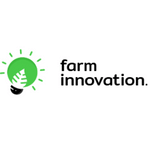Farm Innovation Nigeria Ltd has launched VetWiz 2.0, a new digital platform designed to revolutionise disease detection and surveillance in livestock.
Speaking at the unveiling in Abuja on Thursday, Chinwe Owhorji, CEO of Farm Innovation Nigeria Ltd, described VetWiz 2.0 as a transformative upgrade that leverages artificial intelligence (AI) to make animal disease monitoring smarter and more responsive.
“From our engagements with stakeholders like the National Veterinary Research Institute (NVRI) and the Biosciences for Climate and Nutrition (BCN), we saw the need to build a platform that supports both human and animal health workers,” Owhorji said. “With this relaunch, we’re embedding AI to make disease monitoring more intelligent and responsive.”
VetWiz 2.0 offers features such as AI-powered disease diagnostics, real-time outbreak alerts, and data analytics tools to inform national animal health policies. Initially developed for community animal health workers, it now supports veterinarians, government agencies, and rural farmers across Nigeria.
The app, according to experts, enables field officers to diagnose symptoms, receive treatment recommendations, escalate complex cases to licensed veterinarians, and connect with nearby veterinary suppliers for drugs and vaccines.
Dr. Samuel Anzaku, of the Federal Ministry of Livestock Development, praised the platform as timely and crucial for modernising Nigeria’s livestock health sector. “Livestock is the backbone of our economy. Any threat to animal health impacts food security and livelihoods. VetWiz 2.0 is both timely and essential,” he said.
The enhanced VetWiz platform seeks to close critical data gaps in Nigeria’s animal health system, supporting more effective surveillance and public health response.
Chief Technology Officer of Farm Innovation Nigeria Ltd, Olawale Arowolo, noted that VetWiz 2.0 now transmits real-time data to national bodies like NVRI. “Our goal is to close gaps in disease trend tracking. This will not only improve treatment but also inform vaccine development and broader public health strategies,” he said.
Arowolo added that the technology aims to support, not replace, veterinary professionals by providing smarter insights and connecting farmers to resources critical for animal health and food security.
About Farm Innovation Nigeria Ltd:
Founded in 2019, Farm Innovation Nigeria Ltd is a technology-focused agribusiness enterprise dedicated to transforming agriculture and rural livelihoods through digital solutions. The company has collaborated with major partners including the Mastercard Foundation, PropCom, and MyCaFe to deliver impactful technology-driven projects across Nigeria.
Farm Innovation Nigeria specialises in creating tools for smallholder farmers, with an emphasis on sustainable agriculture, data-driven decision-making, and improving food systems’ resilience. VetWiz, one of its flagship products, has evolved into a significant digital health tool in Nigeria’s livestock sector.
Looking ahead, the company plans to integrate more stakeholders—including veterinary councils, pharmaceutical firms, and research institutions—to further expand the reach and impact of VetWiz 2.0.
“Our vision is to build digital solutions that contribute to food security, public health, and economic resilience in Africa,” Owhorji concluded. “Technology is key to unlocking these possibilities.”
TALKING POINTS
We’ve seen excellent tech pilots vanish because government agencies lacked funding, political will, or digital literacy to adopt them fully. If VetWiz 2.0 is to work, ministries and agencies must use the data it generates—and that’s not a small ask.
Everyone preaches about agriculture and food security, but few focus on veterinary health infrastructure. Without healthy animals, farmers lose income, protein sources dry up, and diseases can jump from animals to humans. VetWiz 2.0 shines a long-overdue spotlight on this ignored pillar of food security.
Some critics argue Africa is rushing into AI without solving basic infrastructure needs. But livestock health desperately needs data. AI’s ability to detect patterns from scattered disease reports could save thousands of animals—and livelihoods. Ignoring AI here would be foolish.




